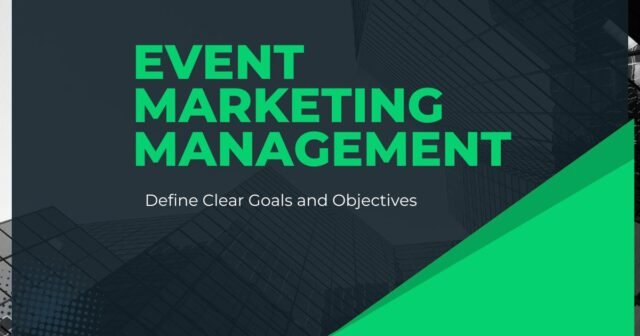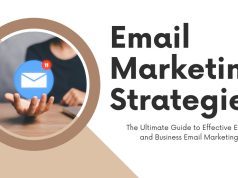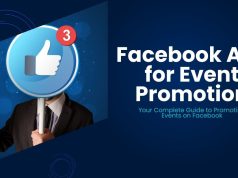Nowadays, event marketing means more than simply organizing an event and praying that people will come. It is about creating memorable experiences that involve your audience, stimulate meaningful interactions bring measurable results to your brand. No matter what you’re hosting–from industry conferences to product launches or a virtual conference–the art of event marketing management is a must for success.
What is Event Marketing Management?
In other words, event marketing management is simply the art of planning, organizing, and analyzing events so that they are effective tools for meeting your marketing and business objectives. Such events may take many forms: in-person, anything from trade shows and conferences through workshops; virtual experience, then there’s web seminars or even product launches online.
The audience you are targeting is the final goal of event marketing, and at the same time, it needs to generate brand awareness that will enable you to give some form of impression on other aspects of your business. It also has to produce leads for brands, not just traffic, but actual customers ready to buy the products or services being offered. But effective event marketing management uses a strategic approach combining creativity with technical expertise for the best results in today’s data-driven world.
Why Events Are a Powerful Marketing Tool
Events provide a unique opportunity for brands to connect with audiences on a personal level. Here are some key reasons why events are an irreplaceable tool in the marketer’s toolkit:
- Build meaningful relationships: Events foster face-to-face (or screen-to-screen) interactions that help build trust and loyalty with your audience.
- Boost brand awareness: Hosting an innovative or memorable event can help amplify your brand and make it stand out in your industry.
- Generate leads and sales: Well-targeted events attract prospects who are interested in your product or service, helping you fill your sales pipeline.
- Showcase your expertise: Events allow you to position your brand as a thought leader by presenting knowledge, insights, and solutions that matter to your audience.
- Collect valuable data: Events provide a wealth of information about your audience’s interests, behaviors, and preferences, which can inform future marketing efforts.
Now that we’ve established the value of event marketing, let’s explore how to excel at managing events from start to finish.
Key Steps in Event Marketing Management
1. Define Clear Goals and Objectives
Before you start planning your event, you need to know what you want to achieve. Are you looking to generate new leads, increase brand visibility, or educate your audience about a specific topic? Defining SMART (Specific, Measurable, Achievable, Relevant, and Time-bound) objectives will guide your entire event strategy.
💡 Quick Tip
Examples of event goals:
- Generate 200 new leads from a webinar.
- Achieve a 90% attendee satisfaction rate at a conference.
- Drive a 20% increase in product demo requests after an event.
2. Know Your Audience
The success of any event hinges on knowing your target audience inside and out. Who are they? What challenges do they face? What are their interests and pain points? Use market research, surveys, and audience personas to identify your audience and tailor your event to meet their needs.
3. Plan the Event Experience
Event planning is all about logistics and details. Key considerations include:
- Date and time: Pick a time that works well for your target audience, keeping time zones in mind for virtual events.
- Theme and content: Create a cohesive theme and offer content (like keynote speakers, panels, or workshops) that aligns with your audience’s interests.
- Venue or platform: Choose a venue for in-person events or a user-friendly platform for virtual ones. Platforms like Zoom, Hopin, and Airmeet are great for virtual events.
- Budget: Outline all expenses, from venue rental and decor to marketing campaigns and speaker fees.
4. Promote Your Event
Promotion is where the magic happens. Use a multi-channel marketing strategy to maximize visibility and attendance:
- Social Media Marketing
Share event posts, videos, and countdowns on platforms your audience frequents. Use hashtags and interactive features like polls to drive engagement.
- Email Campaigns
Send invitation emails, early-bird promotions, and reminder emails to your subscriber list.
- Paid Ads
Run targeted ad campaigns on Google, Facebook, or LinkedIn to reach a wider audience.
- Partnerships
Collaborate with partners, influencers, or industry experts to expand your reach.
💡 Pro Tip
Create an event landing page with all the essential details (date, time, location, agenda, speakers, registration form, etc.) and optimize it with SEO-friendly keywords, such as “best event marketing strategies.”
5. Engage Before, During, and After the Event
Engaging your audience is critical for keeping them invested throughout the entire event cycle:
- Before the Event
Build anticipation with sneak peeks, speaker announcements, and interactive polls.
- During the Event
Encourage participation with live Q&A sessions, audience polls, and gamification elements like scavenger hunts.
- After the Event
Follow up with attendees by sharing thank-you emails, event recordings, and exclusive offers related to your product or service.
6. Measure Success with Data
Post-event analysis is essential for understanding the impact of your event and improving future ones. Track key metrics such as:
- Attendance rate
- Engagement levels (e.g., Q&A participation)
- ROI (return on investment)
- Leads generated
- Social media impressions
Use tools like Google Analytics, HubSpot, or your event platform’s built-in analytics to measure performance.
Common Mistakes to Avoid in Event Marketing
Even the most experienced marketers can face pitfalls when managing events. Here are some common mistakes and how to avoid them:
- Neglecting promotion: Without a solid marketing campaign, your event may struggle to attract attendees. Start promoting at least 6–8 weeks in advance.
- Overcomplicating details: An event with too many moving parts can feel overwhelming. Focus on simplicity and create a seamless experience for attendees.
- Failing to follow up: Post-event communication is a golden opportunity to convert leads into customers. Don’t skip it!
Final Thoughts on Event Marketing Management
Event marketing management isn’t a one-size-fits-all approach. Each event and audience you serve has its own needs—succeeding means careful planning, imaginative promotion, and, most of all, delivering experiences that are not just good but great.
Beyond the basics, when you are ready to take your event marketing to the next level, out into the great big world, the best option might be hiring a professional event marketing team or seeking out advanced tools that specialize in and serve your industry.
Well-conceived investments in event marketing can significantly distinguish your brand with the audience you seek, and help bring real results for your business. Start planning your next great event today!









